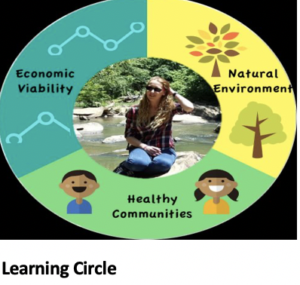Maria T. Clark, Senior Lecturer in Safeguarding, PhD, FHEA, RNT, RGN, SCPHN-HVBirmingham City University, Twitter; @tigheclark E: maria.clark@bcu.ac.uk
Jennie Aronsson, Lecturer in Adult Nursing,BSc (Hons), PgDip, RN, SCPHN (SN), RNT, FHEAPlymouth University, Twitter: @jennie_aronsson E: jennie.aronsson@plymouth.ac.uk
Hannah Ward, BNurs (Hons) BA (Hons), RN, Twitter @_Rainbow_Fish University of Birmingham (Alumni) E: hannah.ward1@outlook.com
Marsha Meade, BNurs, RN, Twitter; @marshadmeade University of Birmingham (Alumni); E: marsha.d.meade@gmail.com
Anisha Kaur, BNurs (Hons) RN. Twitter – @iamanishas University of Birmingham (Alumni) E: suthi09@hotmail.co.uk
Jessica Timmins, BSc BNurs RN Twitter; @timminsjess University of Birmingham (Research Associate) E: J.M.Timmins@bham.ac.uk
Jane Nicol, Senior Lecturer, RGN, BSc, PGCE(HE), MAEd, SFHEATwitter @jnicolbham University of Birmingham, E: J.Nicol@bham.ac.uk
Introduction
Worldwide, despite over two decades of literature focusing on the climate emergency and its impact on public health, action on sustainable healthcare remains relatively neglected in nursing curricula. The UK government (Department for International Development) (Agenda 2030) pledged support for the United Nations 17 Global Goals for Sustainable Development, including action on climate change (Goal 13) (DfID, 2015). The NHS Sustainable Development Unit’ suggested ‘a sustainable health and care system is achieved by delivering high quality care and improved public health without exhausting natural resources or causing severe ecological damage’. Application of sustainability principles to medical and dental practice demonstrates cost savings, carbon reduction and lean thinking, particularly in respiratory medicine and nephrology/dialysis (Centre for Sustainable Healthcare, 2018).
Nurses are just beginning to understand the impact of wider environmental issues, such as climate change, on healthcare delivery (Centre for Sustainable Healthcare, 2018; Royal College of Nursing, 2019). Extreme weather events have disrupted the supply of globally produced goods and materials for essential healthcare (notably, oil and cotton). The coronavirus pandemic has demonstrated the global nursing contribution to public health. Nurses are encouraged to be futures-focused leaders and activists in delivering sustainable patient care (Richardson, 2020; NMC, 2019; Richardson et al, 2014; Walpole and Mortimer, 2017). Addressing fossil fuel dependence by converting to lower carbon lifestyles reduces waste and promotes self-care and resilience.
“Sustainable development is development that meets the needs of the present, without compromising the ability of future generations to meet their own needs.….Sustainability in the context of healthcare is about progress in the delivery of high quality patient care for all by promoting the three elements of sustainable development – environmental, social and financial”(cited by RCN, 2019).
Anaker & Elf (2014) and others have long called for action on sustainability thinking for future-fit, 21st century nursing. Higher education recommendations for sustainability education have developed apace (Facer, 2020; Sterling, 2012: Ryan & Tilbury, 2013). The United Kingdom (UK) Nursing and Midwifery Council (NMC) (2019:27) recently recommended that future midwives should ‘demonstrate knowledge and understanding of the principles and methods of sustainable healthcare’. Promoting these trends, the Erasmus web-based NurSus.EU research project offered valuable free teaching and learning online resources, reminding us that nurses can and do work across borders to develop innovative solutions to the climate emergency for healthcare (Richardson, 2020).
A futures-thinking elective learning approach
Here, we report on an initiative to foster student nurses’ engagement with sustainable healthcare, by embedding this into the elective learning component of the nursing curriculum at the University of Birmingham (U.K). Building on two of the authors prior initiatives to promote public health nursing engagement with elective sustainability learning at Plymouth University (U.K) (Aronsson, 2016; Tighe et al, 2013). Traditionally, elective learning has offered nursing students the opportunity to undertake a clinical placement abroad, learn from different cultures, and apply their newfound knowledge to local practice on return. Little research has shown students’ experience in this regard (Collins et al, 2018).
We designed this elective learning opportunity to offer unique ‘home’ based (UK) opportunities for nursing students: (1) to help them learn about sustainability in healthcare and (2) to embed these principles in the UK nursing curricula by exposing the students to learning opportunities not previously afforded to them. In this case, the participating students, as part of their curriculum, had some prior exposure to sustainable healthcare teaching (MC) using climate change emergency scenarios. Following in-class teaching, some nursing students suggested that sustainability thinking should be a greater component of learning about nursing impacts on the environment (MM; HW; AK). Therefore, this elective learning opportunity had dual aims: (1) to offer new curricula opportunities for nursing students to learn about sustainability in healthcare; (2) to facilitate student-led experiences of learning about sustainable healthcare in the UK. We aligned these aims to the NurSus.EU learning experience using extra-collegiate networks to facilitate internationally aligned learning. The acronym ‘SHEN’ (Sustainable Healthcare Elective in Nursing) was adapted from the ‘Sustainable Healthcare Elective’ (SHE) information and resources located from the UK Centre for Sustainable Healthcare (CSH).
Making Connections
Three students expressed interest in elective learning about sustainable healthcare and were encouraged to set up a collaborative, social learning network. First, the students met with their SHEN supervisor (MC) to discuss a project focus and agreed this with their elective module lead (JN). Through a series of conversations, MC subsequently linked them to people, places and resources involved in sustainability education in healthcare (Aronsson, 2016).
Objectives
Students utilised their SHEN experience towards five elective learning objectives embedded in the nursing curriculum. By the end of the elective, all students had successfully:
- Demonstrated professional and acceptable standards of behaviour during the [sustainable healthcare] elective placement (150 hours)
- Demonstrated problem-solving skills in planning and organising their [sustainable healthcare] elective
- Negotiated individual learning outcomes as part of the planning and organising of the [sustainability healthcare] elective
- Synthesised their knowledge of various aspects of collaboration required for holistic [sustainable] patient care within multi-professional care settings
- Experienced nursing practice in an area [sustainable healthcare] that was not otherwise available to them as part of the BNurs (Hons) programme
Health Service Improvement
Maintaining a healthcare environment that is timely, accessible and resource-aware is a pressing public health need. The students who had suggested they would like this elective learning had already established environmental interests: for example, one student had been a ‘Green Champion’ in a local school (HW). This supports our previous experience of building sustainability electives into the wider public health nursing curricula (MC, JA): some students naturally grasped the opportunity to realise and apply their pro-environmental values to professional practice, through applying these principles to the elective learning objectives outlined in their nursing curricula (Aronsson, 2016; Tighe et al, 2013). To open up these ideas to more students, a list of potential projects was offered (MC) and the students made suggestions congruent with their learning in the clinical areas where they had recently worked;
(1) Linking people and patients to health promoting outdoor environments (MM);
(2) Improving clinical waste management in hospital settings (HW);
(3) Identifying child exploitation due to human displacement following natural disasters (AK).
Collaborative Learning
Collaboration is an essential feature of sustainability education for nurses; allowing multidisciplinary space to extend the students’ social field of learning (Centre for Sustainable Healthcare, 2018; Richardson et al, 2014). SHEN focused on locality-based learning – developing new nursing relationships through online and face-to-face meetings in two urban cities in the UK (Birmingham and Plymouth). The U.K Centre for Sustainable Healthcare proved an important online learning platform, alongside linked Twitter feeds and groups [@SusHealthcare] that also provided a rich digital environment to enable deeper thinking. Learning from the University of Plymouth experience was crucial, because of their award winning sustainability research and education [@PlymouthCSF]- including NurSus.eu training resources and achievements in clinical waste management (Richardson et al, 2014).
The University of Birmingham shared their linking to NHS Forest activities and The Birmingham Institute of Forestry Research (BiFor). Greening the local campus and hospital environments, while raising awareness of the human health benefits. The collaborative pedagogy adopted within SHEN aimed for ‘transformative’ learning (Aronsson, 2016; Tighe et al, 2013). This allowed students to reflect upon and reconsider traditional views of the nursing profession. Aronsson (2016) found that such reflection can be troublesome. It challenges one’s own views and those of others. The three nursing students who engaged in SHEN reported their experiences in a way that suggests such transformative learning took place.
Student-Led Learning
We used the Anaker & Elf (2014) concept of sustainability in nursing to focus student learning:
“Sustainability in nursing involves six defining attributes: ecology, environment, future, globalism, holism and maintenance. … Consequences of sustainability in nursing include education in the areas of ecology, environment and sustainable development as well as sustainability as a part of nursing academic programs and in the description of the academic subject of nursing” (Anaker & Elf, 2014).
Three projects reflected the students’ sustainability interests:
· Student Led Innovation for a Greener Future – Clinical Waste Management (HW);
· Developing a Walkway to Improve In-Patient Engagement with Outdoor Nature (MM);
· Human displacement and climate change – implications for child exploitation (AK).
Demonstrating Anaker & Elf’s (2014) ‘futures’ thinking as a defining attribute, these three nursing students reported positive learning experiences that (1) enriched their lives and (2) broadened their perspectives for longer term nursing careers. Reflective writing (towards this blog), furthered their engagement with sustainable healthcare electives in nursing. Together, and independently, these students presented their learning outcomes about:
· Sustainable waste management;
· Mental health benefits of gardening;
· Emergency planning for adverse weather events;
· The impact of climate change on child exploitation.
Writing in their reflective diaries, the students’ reported shifting to sustainable nursing practice:
“With support from my academic supervisor and her professional connections; I was able to spend a day with different members of the sustainability team [at Plymouth University] discovering their pioneering work within the field. Aside from furthering my sustainability knowledge it allowed me the opportunity to challenge my own thinking and preconceptions”. [HW]
“Conversing with the developers of the NurSus Toolkit and students fortunate to have benefitted from Plymouth’s transformative education programme actively encouraged me to share my newly found knowledge with UoB and seek to implement sustainability education into our academic programme”. [HW]
Advocacy skills developed for improving in-patient mental health experience in hospitals:
“Embracing these opportunities allowed me to actively participate in efforts to improve the environment, meet and network with people who used nature as an alternative model for improving health and wellbeing. I also used my time to map several walking trails around the hospital on a My Wellness App so that I could become a first-hand advocate about the various places where they could exercise, discover something new or get some fresh air”. [MM]
Making the connection between outdoor nature, the environment and health was a highlight:
 “Amazed with how much the environment impacts our health and how easily we are destroying it. Fresh
“Amazed with how much the environment impacts our health and how easily we are destroying it. Fresh  air with nature, green space, and natural beauty has more benefits to our health than we currently know. Interesting to visualise how climate change has an impact on child homelessness, sexual/exploitation. There is almost a ripple effect” [AK]
air with nature, green space, and natural beauty has more benefits to our health than we currently know. Interesting to visualise how climate change has an impact on child homelessness, sexual/exploitation. There is almost a ripple effect” [AK]
Developing a poster presentation consolidated the learning and activities undertaken.
Click here to view the posters: https://app.luminpdf.com/viewer/5fdf6e79478ac20011ffbf8d
Conclusion
The graduate nursing workforce is resourceful. The diversity of projects undertaken here showed the flexible learning inherent to futures-fit sustainability education (Ryan & Tilbury, 2013; Sterling, 2012). Undertaking a sustainable healthcare elective was a positive learning experience for nursing students and the staff who supported them. It broadened personal and collegial learning about the vital relationship between environment, health experience and the delivery of nursing care. We invite action to maintain the momentum for student engagement with sustainable healthcare, through elective learning developments within and beyond the borders of nursing education.
Acknowledgements
- Sarah Howes and Andy Nichols, University of Plymouth, U.K
- Zoe Peryer, Queen Elizabeth Hospital, Birmingham, U.K
- Deanne Brettle, BiFor, University of Birmingham, U.K
- Aldo Mussi, Birmingham City University, U.K
References
Anaker, A. Elf, M (2014) Sustainability in Nursing: A concept analysis. Scandinavian Journal of Caring Sciences 28(2) 381–389. doi: 10.1111/scs.12121
Aronsson, J (2016) Transformative sustainability learning within the undergraduate nursing curriculum. Community Practitioner: Journal of the Community Practitioners’ & Health Visitors’ Association 89 (1):20-2
Centre for Sustainable Healthcare (2018) Centre for Sustainable Healthcare: 10 Year impact review, Centre for Sustainable Healthcare Accessed 17.07.2019 online https://sustainablehealthcare.org.uk/resources/publications
Collins, E. Ross, J. Crawley, J. Thompson, R (2018) An undergraduate educational model for developing sustainable nursing practice: A New Zealand perspective. Nurse Educ Today. Feb; 61:264-268. Doi: 10.1016/j.nedt.2017.12.012.
Facer, K (2020) Beyond business as usual: Higher education in an era of climate change, Debate Paper 24. Accessed online 12.12.2020 https://www.hepi.ac.uk/wp-content/uploads/2020/12/HEPI_Beyond-business-as-usual_Higher-education-in-the-era-of-climate-change_Debate-Paper-24_FINAL.pdf
Nursing and Midwifery Council (NMC) (2019) Standards of proficiency for midwives. Accessed online 19.03.20 https://www.nmc.org.uk/globalassets/sitedocuments/standards/standards-of-proficiency-for-midwives.pdf
Richardson, J (2020) Nurses can be leaders and activists as well as carers. Nursing Times 02nd Sept, 2020 Accessed online 07.12.20 https://www.nursingtimes.net/opinion/nurses-can-be-leaders-and-activists-as-well-as-carers-02-09-2020/
Richardson, J. Grose, J. Doman, M. Kelsey, J (2014) The use of evidence-informed sustainability scenarios in the nursing curriculum: development and evaluation of teaching methods. Nurse Educ Today. Apr; 34(4):490-3. Doi: 10.1016/j.nedt.2013.07.007.
Royal College of Nursing (2019) Sustainable Nursing Practice Online Library Resources Accessed online 17.07.19 https://www.rcn.org.uk/library/subject-guides/sustainable-nursing-practice
Ryan, A Tilbury, D (2013) Flexible pedagogies, new pedagogical ideas. Advance HE Accessed online 12.12.20;https://www.advance-he.ac.uk/knowledge-hub/flexible-pedagogies-new-pedagogical-ideas
Sterling, S (2012) The Future Fit Framework: An introductory Guide to Teaching and learning for Sustainability in HE. Higher Education Academy Accessed online 12.12.20; https://www.sustainabilityexchange.ac.uk/files/future_fit_270412_1435.pdf
Tighe, M. Whiteford, A, Richardson, J (2013) Stepping Out: Enabling Community Access to Green Space through Inter-Disciplinary Practice Learning in Plymouth, UK. The Higher Education Academy PBLH, Vol 1, Issue 2 (October 2013) doi:10.11120/pblh.2013.00013
UK Government Department for International Development ( 015) Agenda 2030 The UK Government’s approach to delivering the Global Goals for Sustainable Development – at home and around the world. Accessed online 12.12.2020 https://assets.publishing.service.gov.uk/government/uploads/system/uploads/attachment_data/file/603500/Agenda-2030-Report4.pdf
Walpole, S. and Mortimer, F. (2017) Evaluation of a collaborative project to develop sustainable healthcare education in eight UK medical schools. Public Health, 150, pp.134-148.
